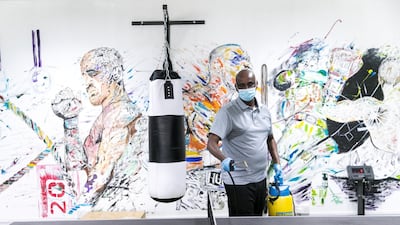Legal changes that provide more rights for people who are arrested in the UAE have already had an impact on the justice system, one of the country’s most senior judges said.
Three amendments made to Federal Decree Law Number 35 of 1992, in particular, offer protection to suspects who have been accused of crimes, arrested and then brought in for questioning.
The changes were confirmed on September 30, 2020 in Federal Decree Law Number 28, shortly before the government changed a series of personal and family laws in November.
There were several significant changes:
– evidence obtained under duress or degrading treatment is inadmissible;
– prosecutors and police are required to retain a translator who can be freely used by suspects;
– the right to remain silent is enshrined in law, without any presumption of guilt by doing so;
– a suspect must be informed of their crime upon detention.
Dr Ali Galadari, a judge in Dubai Court of Cassation, told The National that the changes have already had an impact nationwide, leading to some cases being thrown out by the courts.
"The minute these new laws were introduced officially they were implemented in all UAE courts, as they complete and add to previous regulations," Mr Galadari said.
“There were many cases in which the offender would have been found guilty before we implemented the current laws, after which they were seen as innocent and let go.”

Dubai lawyer Ludmila Yamalova, managing partner of HPL Yamalova & Plewka, said the right to a translator provided by the authorities is one of the most significant developments.
“Now a suspect’s lawyer could challenge and invalidate this type of evidence on the basis that it violates these new criminal procedure laws,” she said.
“We haven’t seen any publicity about these amendments, but to us as legal practitioners, these changes are very, very valuable.”
Changes part of broader legal overhaul
Now for a signed statement to be admissible in the UAE's judicial system, it needs to have been agreed by an official translator.
The UAE's commitment to offer such services to all suspects is a "fundamental change in the legal system," said Ms Yamalova.
“Most of what we do here in the UAE is English based, so it’s quite shocking to expats when all police and judicial proceedings are done in Arabic.
“Some people say things and sign off on things they don’t understand because they’re intimidated by the circumstances.”
The amendments are important for several reasons, said Mr Galadari.
“They go hand in hand with current economic and technical changes,” he said.
"Furthermore, the UAE is a country which attracts many tourists and expatriates, which means there's a multitude of nationalities, backgrounds and religious views to cater for.
“As such, the changes have been made with those differences in mind.
“Introducing these new laws and means of actions have helped the UAE become one of the world’s top countries, due to the laws being closer in line to international norms.”















